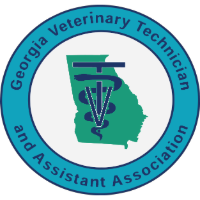Student Resources
Career Paths | Approved Veterinary Assistant Programs | Veterinary Technology Programs
Career Paths in Veterinary Medicine - Oh the Places You’ll Go!
The animal kingdom is your oyster - work with your favorite creatures, or take the opportunity to work with something new!
Small Animal
Equine
Farm Animal
Exotics
Lab Animals
Wildlife
“Small Animal” is the most common division of creatures - these are just cats and dogs. “Equine” focuses on horses (they have a lot of problems, they need a lot of focused attention). “Farm animal” includes sheep, cows, goats, pigs, chickens, and more. “Exotics” is the broadest category and encompasses everything else - birds, reptiles, turtles, fish, rabbits, “pocket pets” (rats, mice, hamsters, etc), and more. “Lab Animal” covers animals in research laboratories (rodents, sometimes birds, sometimes other small animals). “Wildlife” works with creatures kept wild (non-domesticated) - zoos, aquariums, and wildlife rehabilitation tends to see to this category.
These are general common terms, but titles may vary. For example, “Large Animal” medicine may include equines and some farm animal (cows, but not chickens for further example). Some general practice clinics might see small animals (dogs and cats) and exotics. There are also mixed practice clinics that see “small animal” and “large animal” categories. Don’t ever feel confined to a narrow scope of practice, there are broad ranges out there!
Behavior
Dentistry
Dermatology
Education
Emergency
Internal Med
Ophthalmology
Pathology
Pharmaceuticals
Physical Therapy
Research
Shelter Medicine
Then, there’s what you’ll do! The type of work you do is not solely general practice or specialty, there’s always a gradient! And with all those shades and variations - we promise there is one where your love for animals and your passion for making this world a better place will find it’s forever home. Here are some very brief and general descriptions of some of the more common areas of focus / specialty:
Behavior: a field that grows more popular and more vital every day! The more we learn about animals the more credit we give to their complexity. Our once-were-wolves suffer from anxiety (separation, low confidence, etc), lack of stimulation and enrichment, and other behavioral issues. Behavior modification is hard - it’s easy for pet parents to get discouraged and they need you to help them see it through. Behavioral issues are one of the top reasons why pets lose their homes, and in some terrible cases - their lives. Be the Moana to their Tefiti - show they who they really are. You will know the way.
Dentistry: another field that impresses pet owners every day - oh, my pet needs routine preventive dental care as much as I do? Commonly performed at general practice but also growing in its own niche of dental care exclusivity (check out the only boarded veterinary dentist in GA: https://veterinarydentistry.net/atlanta/, and their amazing licensed veterinary technician who has her veterinary technician specialty (VTS) in dentistry). This focus and specialty will help the lives of pets and pet owners everywhere. Oh my, they lick their humans with that mouth??
Dermatology: Welcome to the south, would you like some sugar with your pollen (because the allergies around here are hype). From allergies to ectoparasites to out-of-control autoimmune responses and more - this focus will keep you on your toes. General practice will see the simpler cases, but when they’ve exhausted all options to no avail and/or no answers - the specialists will take it from there! New developments in pharmaceuticals will keep the lunch n’ learn opportunities coming.
Education: Although not recommended for those fresh out of school, once you have years of experience and expertise under your belt you can share it with the next group of LVT’s to be! With 6 AVMA-CVTEA accredited programs in Georgia, and several more available online - there are learners out there that would be better LVTs if they had you to guide them during their education.
Emergency: This area tends to speak for itself, although not typically judiciously portrayed in movies and on television. A pet parent’s definition of an “emergency” may not always mean what they think it means, the overnight shifts are long, the machines are always beeping, and at a moments notice you could be the difference in saving their life. This focus is hard in all the ways - physically, emotionally, and mentally. But, you got this.
Internal medicine: The definition of this focus / specialty is in line with it’s cases, typically complicated. Everything from diabetes to cancer and every organ in-between is touched by the light of the internal medicine kingdom. When pet owners have no where else to turn for answers, they typically turn to internal medicine.
Ophthalmology: What do you call a fish with no eyes? Fishually impaired. See what we did there? From acute trauma, age related changes, glaucoma, ulcers, raging non-responsive eye infections, and more - no pairs of eyes will be the same. Animals aren’t as compliant as humans when it comes to following the light, looking to one side, or taking a puff of air to the eyeball as humans are - so you’ll grow to master an arsenal of tips, tricks, and diagnostic tests to bring the light back to their eyes.
Pathology: If microscopes and machines are your favorite things, this focus / specialty may be for you! Samples will range from blood, urine, feces, tissue, cytology slides, cultures, and more - and your expertise will
Pharmaceuticals: Provider of lunch n’ learns! There is the research side, but there is also the representative side - traveling from clinic to clinic and conference to conference to share life changing / life saving information. You’ll build a network of relationships and you’ll be a pillar of knowledge for the veterinary professionals under your “care”. You might not work directly with animals, but you will change their lives.
Physical Therapy: A growing field of specialists that are giving animals of all kinds life changing improvement to their mobility and comfort. Although used frequently in equines and sports medicine, it is growing in popularity in general practice. Whether recovering from a surgical procedure, fending off arthritic limitations, correcting musculoskeletal complications, and more - this focus / field overflows with positive reinforcement and perseverance.
Research: Typically in the realm of higher education facilities, pharmaceuticals, and government agencies - this focus / specialty advances our knowledge, our medicine, and our quality of care.
Shelter Medicine: Providing medical care to animals who may have never received it, healing those that were neglected, and raising plethoras of puppies and kittens - shelter medicine will make sure you get your steps in.
What’s an Approved Veterinary Assistant?
The designation of “Approved Veterinary Assistant” was created by the National Association of Veterinary Technicians in America (NAVTA) in recognition of the contributions veterinary assistants make to the practice team and to the health of pets.
Interested in Becoming a Licensed Veterinary Technician?
Find the AVMA-CVTEA Accredited Program that fits you:
Conquer the Veterinary Technology National Exam (VTNE)
-
-
-AAVSB offers practice exams (https://www.aavsb.org/vtne-overview/study-for-the-vtne)
-VetTechPrep.com (https://www.vettechprep.com/)
-PocketPrep.com (https://www.pocketprep.com/exams/aavsb-vtne/)
-Mosby's Comprehensive Review for Veterinary Technicians (wherever most books are sold)
























